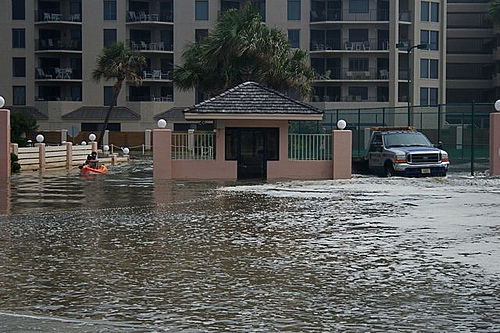(updates article posted on Oct. 31, 2014)
After its property was damaged by a hurricane, Perdido Sun Condominium Association filed an insurance claim with Citizens Property Insurance Corp., a state-created entity that provides property insurance. Perdido Sun was not satisfied with the amount of Citizens’ eventual payment on the claim and sued for breach of contract to recover more money. Perdido Sun won its breach of contract claim and then filed a second lawsuit against Citizens alleging statutory bad faith failure to settle under section 624.155(1)(b)1., Florida Statutes. Citizens moved to dismiss, asserting its immunity from suit under section 627.351(6)(s)1., Florida Statutes. The trial court granted the motion.
On appeal to the First District, Perdido Sun argued that the “willful tort” exception to the immunity provision applied to its bad faith action. Citizen argued the exception must be strictly construed and because it does not specifically reference a cause of action under section 624.155, it does not apply. The First District found that “failing to attempt in good faith to settle claims as provided by section 624.155, Florida Statutes” is a “willful tort.” It therefore reversed the order dismissing the complaint with prejudice.
The First District certified conflict with the Fifth District’s decision in Citizen Property Insurance Corp. v. Garfinkel, 25 So. 3d 62 (Fla. 5th DCA 2009), and certified the following question of great public importance to the Florida Supreme Court: “Whether the immunity of Citizens Property Insurance Corporation, as provided in section 627.351(6)(s), Florida Statutes, shields the Corporation from suit under the cause of action created by section 624.155(1)(b), Florida Statutes for not attempting in good faith to settle claims?”
On May 14, 2015, the Florida Supreme Court held that Citizens is immune from bad faith claims. See Citizens Property Ins. Corp. v. Perdido Sun Condo. Ass’n, SC14-185. To read the full opinion, click here. Looking to the statutory language, the Court found “no support that the Legislature intended for Citizens to be liable for a breach of the duty to act in good faith by allowing its policyholders to bring a statutory first-party bath faith cause of action” against it. The Court concluded that if the Legislature had intended to exempt first-party bad faith claims from Citizen’s statutory immunity, it would have done so “clearly and unequivocally,” which “it could have easily chosen to do.”
Additionally, the Court did not agree with the First District’s conclusion that the statutory cause of action for first-party bad faith is a “willful tort.” Citing to Garfinkel, the Court stated that a bad faith cause of action “exists in Florida not because they are torts, but because they are a statutory cause of action.”
Concluding that Perdido’s first-party bad faith claim pursuant to section 624.155(1) is a statutory cause of action and does not fall within the willful tort exception to Citizens’ immunity under section 627.51(6)(s)1, the Court answered the certified question in the affirmative, quashed the First District’s decision, and approved the Fifth District’s reasoning in Garfinkel, regarding the immunity issue. The Florida Supreme Court remanded the case to the First District with instructions to reinstate the trial court’s order of dismissal.
Image courtesy of Flickr by Ed Hart (no changes).

